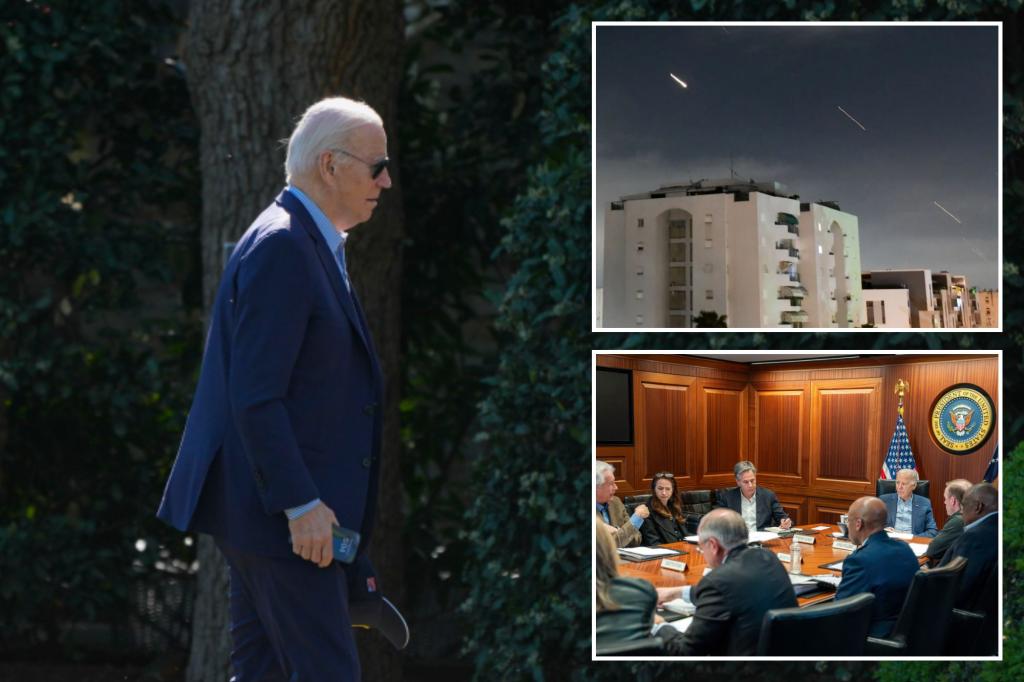Critics were quick to criticize President Biden for his response to the escalating tensions between Iran and Israel, particularly for not addressing the public immediately and for appearing to pressure Israeli Prime Minister Benjamin Netanyahu against retaliating. Biden reportedly urged Netanyahu not to carry out a retaliatory attack against Tehran out of fear that it could lead to a larger conflict, a move that drew criticism from both Democrats and Republicans alike. Despite defending Biden as a fantastic president, Senator John Fetterman emphasized the importance of supporting Israel in such situations and rejected Biden’s approach.
Senator Marco Rubio accused the Biden administration of leaking details of Biden’s conversation with Netanyahu to the press in an attempt to pressure Israel against retaliation. Former President Donald Trump’s ex-National Security Adviser, John Bolton, also criticized Biden’s reported stance, calling it embarrassing to the United States. The White House pushed back against criticism, with National Security Council spokesman John Kirby affirming Biden’s commitment to aiding Israel in defense against the attacks and stating that the US had intercepted numerous drones and missiles before they could reach Israeli airspace.
Biden faced blowback for his decision not to deliver public remarks on the escalating tensions between Iran and Israel, with critics like House Republican Conference Chairwoman Elise Stefanik accusing him of remaining silent during a critical moment. While Biden did not address the public, he did direct the US response behind the scenes, holding a call with Netanyahu to praise Israel for fending off attacks and condemning the actions of Iran. Despite facing criticism from prominent Republicans and conservatives for his perceived lack of leadership in addressing the situation publicly, Biden took multiple actions to support Israel and coordinate with other world leaders on the developing crisis.
Critics like Joey Mannarino and Curtis Houck lamented Biden’s silence during a potentially volatile international conflict, contrasting it with the expectation of a strong and clear response from the leader of the free world. They argued that a Republican president would have faced intense scrutiny for similar actions, accusing the mainstream media of failing to hold Biden accountable. Other commentators, including Clay Travis, criticized Biden for appearing weak and suggested that his handling of the situation was a result of his supposed dementia. Meanwhile, former President Trump seized the opportunity to criticize Biden’s response, emphasizing the need for strength in dealing with international threats like Iran.
The escalating tensions between Iran and Israel and Biden’s response to the situation brought to light divisions and criticisms from both sides of the political spectrum. While some lawmakers and commentators supported Biden’s approach in urging restraint to prevent further escalation, others believed that his actions were weak and lacked clear leadership. The criticism centered around Biden’s decision not to address the public immediately and his reported attempts to dissuade Israel from retaliating against Iran. Despite the criticisms, Biden and his administration maintained that they were committed to supporting Israel’s defense and coordinating with allies to address the ongoing crisis diplomatically.
In the midst of the escalating tensions and criticisms, the situation highlighted the challenges of navigating international conflicts and maintaining support for allies like Israel. As various political figures and commentators weighed in on Biden’s response, the broader implications of the crisis and the need for strong leadership in handling such situations were underscored. The differing perspectives on how Biden should have addressed the situation highlighted the complexities of foreign policy decision-making and the expectations placed on the US president in times of crisis. Ultimately, the episode served as a reminder of the challenges and pressures facing leaders in managing international conflicts and defending the interests of the United States and its allies.


